- Send A Gift
- Books
- T-shirts
- Stationery
- Home Decor
- Corporate Gifts
- About Us
- Log in
-
GBP £
When self-care isn’t enough, this is what you might be missing.
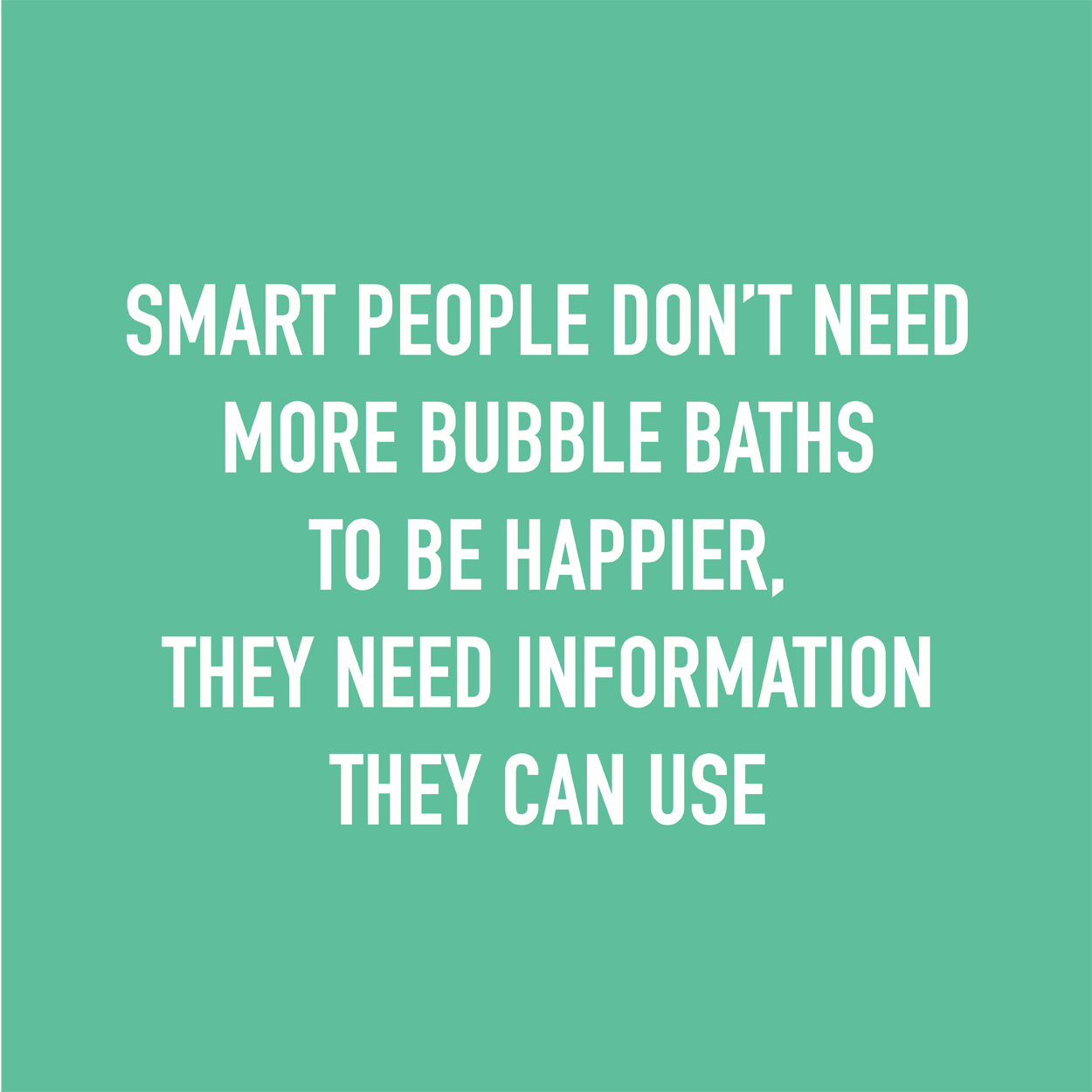
Self-care is not a one-stop-shop!
Self-care is just one (admittedly important) part of the answer but it is often being sold to us as the whole answer.
Our lives are busier and more stressful than ever before and we are looking for answers. What comes across most, is the encouragement to look after ourselves better, take more time for ourselves, and treat ourselves to something special.
This is a damaging message (by itself) for a couple of reasons.
- It puts the problem back onto the individual (if you just looked after yourself better, you’d be happier) which adds to the pressure we feel and the sense of personal failure when we are unhappy or feel our lives are out of balance.
- Even when we do manage to have a good self-care routine it only addresses a small portion of the problem.
The science of happiness is something I strongly believe we should all be taught as children, but we aren’t. How happiness works is infinitely complicated, and at the same time, it’s principles are quite simple.
Generally speaking, our happiness is determined by three areas genetics, your habits (including thinking patterns), and the big things (external goals like a promotion or new house).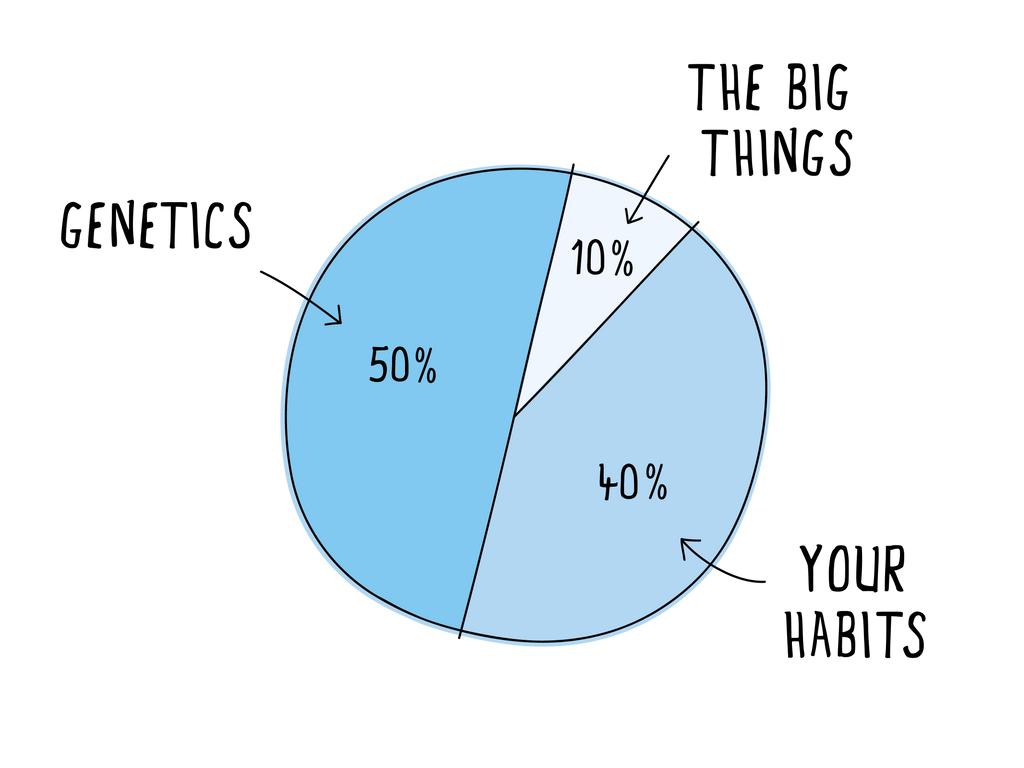
Setting aside, for now, the major issue that I address in my TEDx talk 'Why big things don't have a big impact on our happiness'...
I want to discuss the fact that even though self-care does belong in the large 40% habit section which is within our control to change, it is misleading to think that any self-care activities will automatically increase your happiness. The research shows that the things which have the biggest impact on our happiness (and health!) are connections to others/how socially integrated we are into our communities, our mindset, fulfilment and our levels of gratitude.
Now you might be seeing the problem. It all comes down to which self-care practices we are implementing. There is a huge difference between taking a bubble bath or going for a walk in nature with your best friend. The bubble bath will be relaxing and lower your stress levels. It might help to calm your mind and even give you better clarity of thought. But when it comes to increasing your happiness levels going for a walk in nature with your best friend wins by a country mile.
When you spend time with people you love and trust, your body produces a happy hormone called oxytocin. Oxytocin helps you to feel content and relaxed over a long period of time (weeks/months). Spending time in nature and daylight helps your body to balance another important hormone, serotonin (lasts multiple days). Serotonin is our mood-balancing hormone and plays a massive role in our mental health.
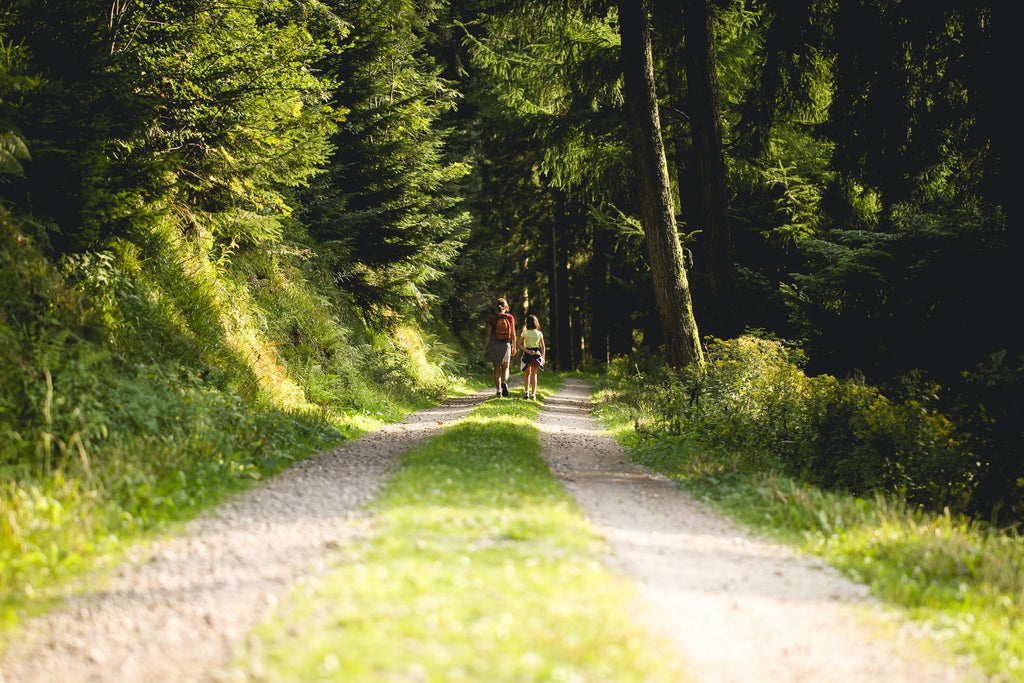
When you start to understand how your body releases happy hormones and for what length of time they effect us then you can start to see which self-care activities will positively impact your happiness and wellbeing and which might be letting you down.
Our other two main happy hormones are dopamine and endorphins. A lot of self-care involves dopamine because it feels good instantly and lifts your mood. The thing is, that it only lasts a few seconds and then it’s gone. Watching Netflix, using social media and eating chocolate are all dopamine-producing activities. They are all also very common self-care or ‘me time’ activities...
Self-care isn’t enough, we need to also have real information that we can use around well-being and happiness. Self-care can then be part of an overall holistic approach to happiness. I believe when people have better information they can start to make better choices and get better results. But it has to start with the information...
Understanding our happy hormones is a great place to begin, my blog post 'How Happy Hormones Work' covers the basics of this. We have also created a beautiful, free printable to help you learn about your feel-good hormones and make more impactful self-care decisions. Grab yours in the bog post 'How Happy Hormones Work. Have you had your daily DOSE'.

I have also written an e-book which covers in a lot more detail, happy hormones, the different things that impact our happiness, how much they impact us and how they can all be brought into our daily lives. You can see my e-book here.

A few points to finish on.
Are you in a crisis? Or going through an unusual life event? If so an important step might be to put into place some temporary boundaries. During times like these, we must take more time for ourselves, to rest our minds and bodies. Using temporary boundaries is a great way to do this. It might look like telling your partner they need to absorb a few of your responsibilities or that you need some time for rest and self-care every day. It might also be something like hiring a cleaner this month and protecting your physical energy.
We all need to be realistic. Think about how much time you have each week for self-care and spend a few minutes strategising. Make sure some of the self-care activities you’re planning are going to be producing your happy hormones that last more than a few minutes. Using our free printable can help this.
You are an individual. You know yourself best. Make sure when you’re thinking about self-care that you take your individuality into account as well as the information around how effective different self-care activities are.
Self-care isn’t enough without usable, factual information as well. Learning about happiness and how to best to prioritise your self-care efforts will save a lot of your valuable time and energy.
You deserve to be happy and with a few small changes, I believe you’ll be able to see a big impact.
Good luck on your happiness journey!
Astra
Also in Blog

3 Simple Ways to Boost Workplace Morale and Create a Positive Culture.
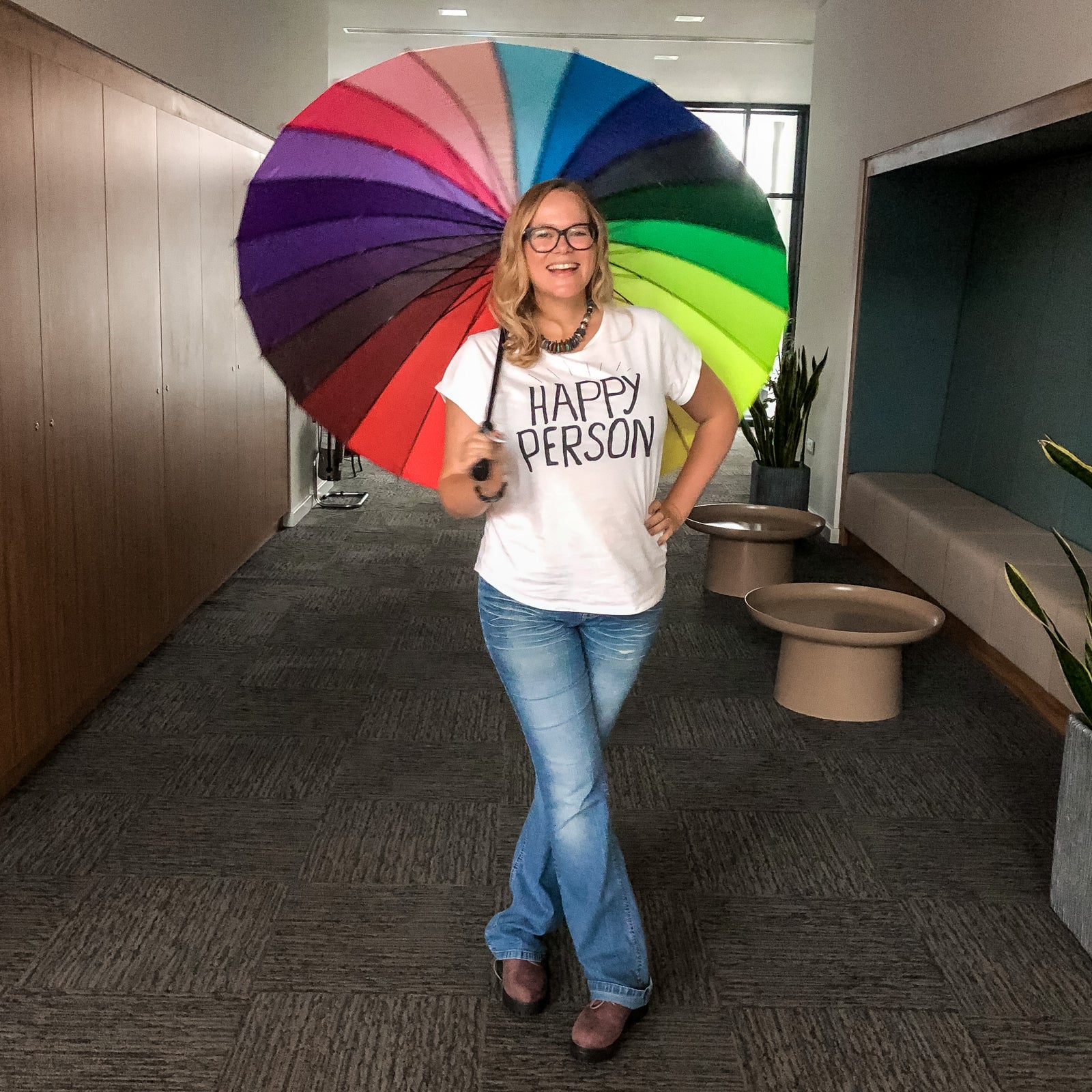
Boosting Productivity and Reducing Stress: Digital Detoxing
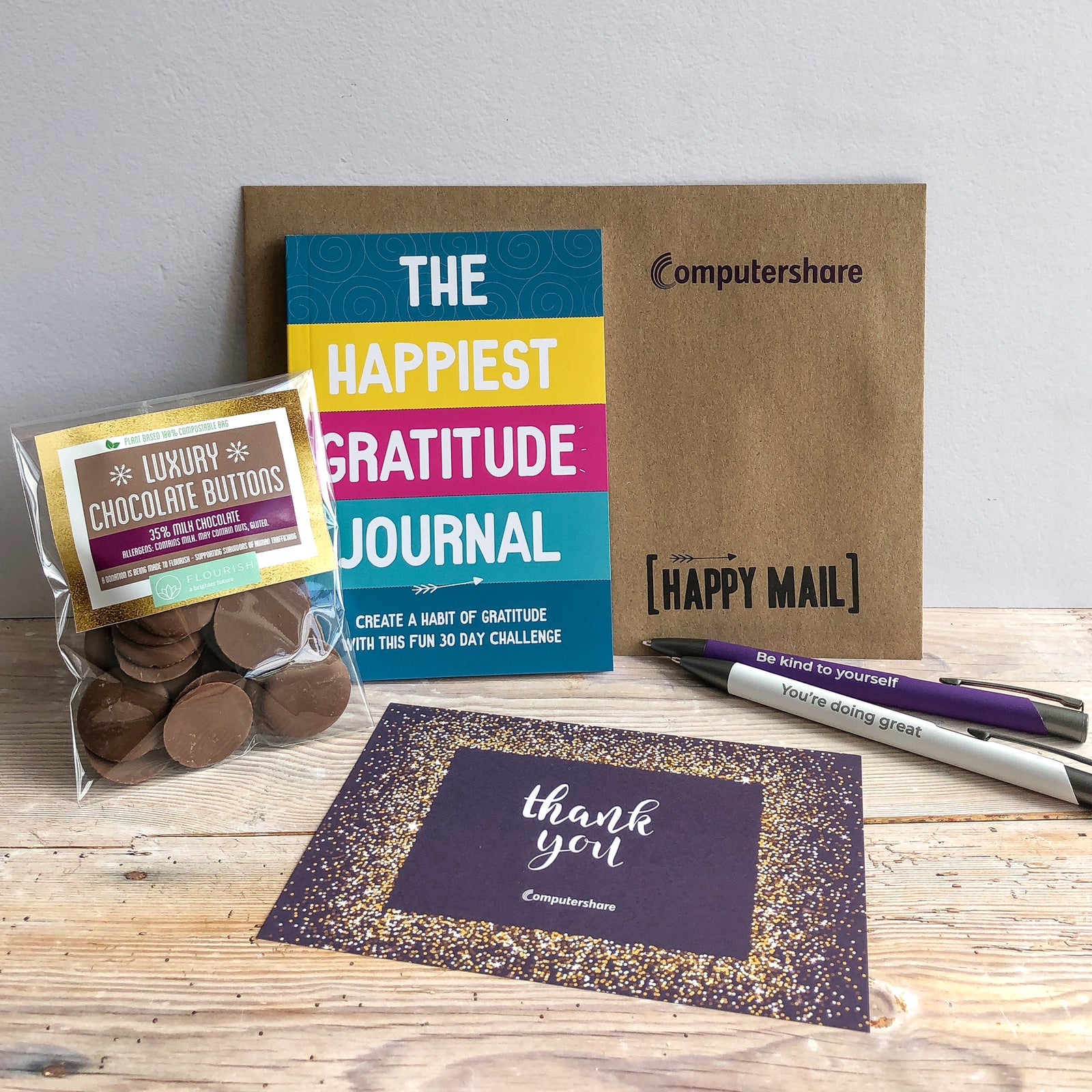
Computershare Global Employee Gifts Testimonial
Computershare wanted to give something that would help their staff to focus on wellbeing. We sent over 10,000 individual gifts to homes in 7 countries spread over 3 continents. Here is what they had to say about working with us.
+Menu title
This section doesn’t currently include any content. Add content to this section using the sidebar.
Collections
Useful Links
News & Updates
Sign up to get the latest on offers, new releases and more!
© 2026 Itty Bitty Book Co. LTD.

